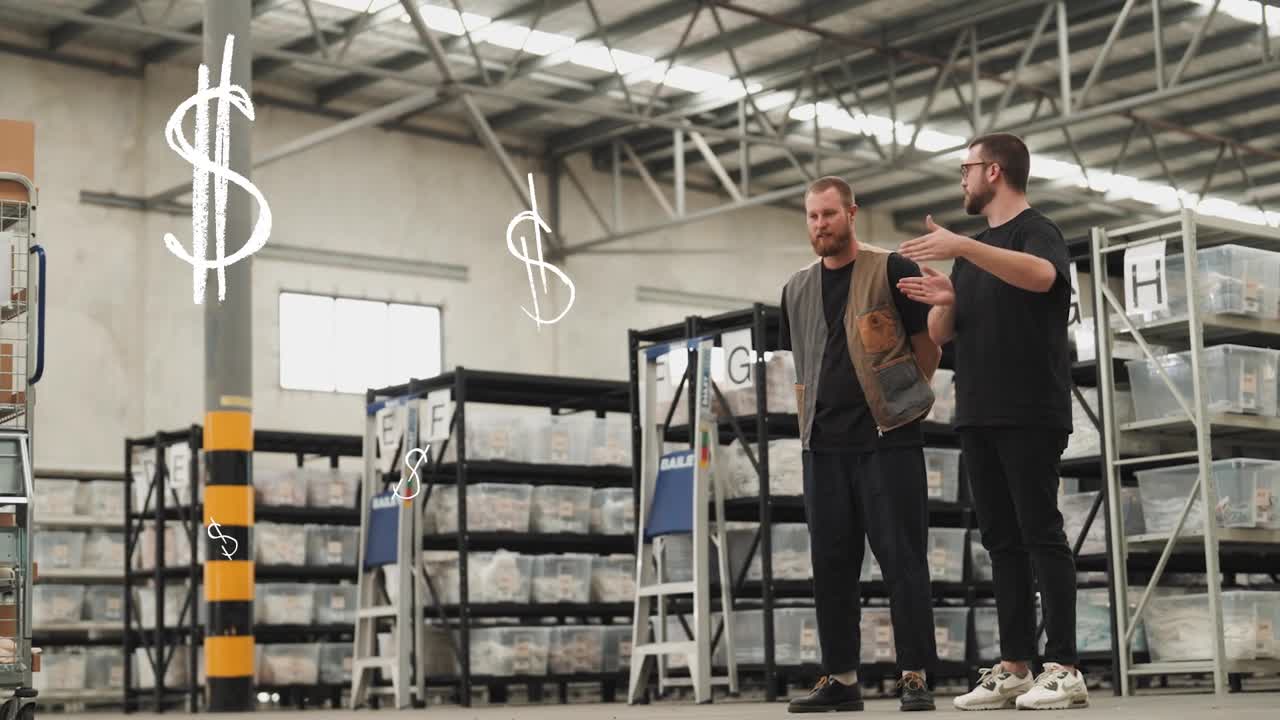NetSuite and Descartes Peoplevox: How a Dedicated WMS Can Supercharge Your Business
Are you dealing with stock inaccuracies like miscounts, data entry errors, incorrect item codes, return processing issues, or poor tracking of stock movements? Are stockouts, slow fulfillment, or fluctuating order volumes making it harder to meet customer demand? Struggling to forecast accurately and stay ahead of peak season?
If your warehouse system is starting to show its limits as your order volumes grow, you’re not alone. Managing multiple warehouses and thousands of SKUs can be overwhelming. Relying on basic systems can lead to costly mistakes like stockouts and delayed orders.
But what if technology could help you keep up with business growth?
By integrating a dedicated warehouse management system (WMS) like Descartes Peoplevox with your NetSuite ERP, you gain the tools to scale more efficiently. Descartes Peoplevox is designed specifically for mid-to-large e-commerce businesses, offering the control and flexibility you need to deliver faster, more accurately, and without bottlenecks.
If you’re responsible for ensuring on-time deliveries, managing inventory to meet demand, or preparing your team for peak season, integrating your ERP with an intuitive WMS like NetSuite and Descartes Peoplevox can solve these challenges and supercharge your business.
The difference between ERP and WMS
Once the business team makes the decision to manage a warehouse and its operations, managers often consider warehouse management systems (WMS) and enterprise resource planning (ERP) systems. These systems, sometimes mistaken for each other, have very different functions. Knowing the differences will help business leaders use them, together.
ERPs provide a broad view of an organization’s activities. They help business leaders to understand the processes across departments. Whereas, a WMS specifically manage activities in a warehouse. A WMS system optimizes tasks like tracking inventory, picking, packing and shipping orders.
A key distinction between ERP and WMS is that ERPs manage an organization’s big-picture operations, such as finance, HR, and sales forecasting, giving leaders strategic visibility. Meanwhile, WMS systems handle the granular day-to-day tasks of warehouse management, like tracking inventory, organizing storage, and overseeing picking, packing, and shipping. A WMS also provides real-time visibility into individual warehouse worker performance, tracking key metrics such as picking accuracy, task completion times, and productivity levels. Through barcode and scanner integration, managers can monitor progress and ensure operations stay on track. Customizable dashboards give clear insights into performance, allowing for data-driven decision-making and goal setting. This transparency fosters accountability, enabling teams to optimize workflows and continuously improve efficiency. This is where the integration between ERP and WMS becomes a game changer.
Why Integrate WMS and ERP?
System integration means that a business’s warehouse data is accurate and updated across the business. For example, when inventory arrives, the WMS checks the ERP for the stock amount. The integration helps businesses avoid overstock and selling nonexistent stock. It also improves order processing times. When you integrate your WMS with ERP, your data isn’t just available—it’s accurate, real-time, and aligned across every department. This means no more guesswork in inventory counts, fewer delays in shipping, and better control over stock levels. For example, with a dedicated WMS like Peoplevox integrated with an ERP like NetSuite, businesses reduce stock discrepancies and minimize costly errors during high-demand periods.
An integrated stack can also revolutionize your operations by implementing automatic picking logic to guide your team’s daily priorities. By setting tailored workflows, tasks are organized based on the specific order profile, such as prioritizing high-speed picking for ecommerce orders versus bulk picking for wholesale shipments. This level of customization streamlines operations, reduces errors, and ensures your team focuses on the right tasks at the right time, enhancing overall efficiency and accuracy.
How Does Descartes Peoplevox Complement NetSuite?
Descartes Peoplevox is purpose-built for e-commerce and wholesale businesses that need advanced warehouse management. It empowers businesses to track inventory across multiple locations, optimize picking and packing workflows, and gain real-time insights into stock movements. Businesses using Descartes Peoplevox alongside NetSuite have reported 35% productivity gains and have the ability to handle more orders per hour with fewer errors—critical during peak sales seasons.
Why an ERP Alone Isn’t Enough?
While NetSuite ERP excels at providing a comprehensive view of your business—handling finance, customer management, and stock insights—its native WMS module is often too basic. It may not offer the scalability needed to manage high SKU counts and complex workflows.
This is where Descartes Peoplevox comes in. By integrating with NetSuite, it enhances your warehousing capabilities with:
- Real-Time Inventory Tracking: Get visibility across multiple locations.
- Customizable Workflows: Pick, pack, and ship more efficiently with fewer errors.
- Barcode and RFID Integration: Streamline stock management.
- Detailed Reporting: Identify bottlenecks and optimize processes.
When you integrate WMS and ERP systems, they work together to provide real-time updates on inventory, reduce manual errors, and keep you one step ahead. Here’s how it benefits you:
- Data Accuracy: Prevent overselling or overstocking with real-time inventory tracking.
- Cost Savings: Reduce excess stock and save on storage costs through better forecasting.
- Efficiency: Streamline workflows to minimize delays and improve order fulfillment times.
Scaling Without Sacrificing Accuracy
As order volumes fluctuate during peak seasons or promotional campaigns, Descartes Peoplevox gives you the flexibility to adapt. Its robust features let you maintain order accuracy while scaling operations, ensuring no customer is left waiting.
The ROI of WMS and ERP Integration
If you’re trying to prove the value to business leaders, ROI is key. Here’s how integrating NetSuite ERP with Descartes Peoplevox delivers:
- Reduced Operational Costs: Minimize errors, optimize workflows, and lower labor costs.
- Faster Fulfillment Times: Meet tight deadlines and increase throughput.
- Actionable Data: Make smarter, real-time decisions to stay ahead of demand.
- Improved Customer Retention: Accurate and timely deliveries lead to happier, loyal customers.
Competition is higher than ever, relying on outdated or basic systems can leave you vulnerable. With Descartes Peoplevox and NetSuite working together, you’ll gain a competitive edge—scaling easily to delight customers, while reducing costs.
Key Takeaways
Easily Scale Your Business: With WMS and ERP integration, you can handle busy seasons and growing demand without sacrificing accuracy or service. It helps your business grow smoothly.
Know Exactly Where Your Stock Is: Real-time tracking lets you keep tabs on inventory across different locations, so you avoid stockouts and overstocking.
Make the Most of Your Team: With WMS insights, you can better allocate your staff to high-priority tasks, reducing labor costs and making your team more efficient.






